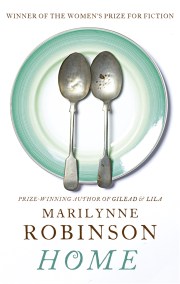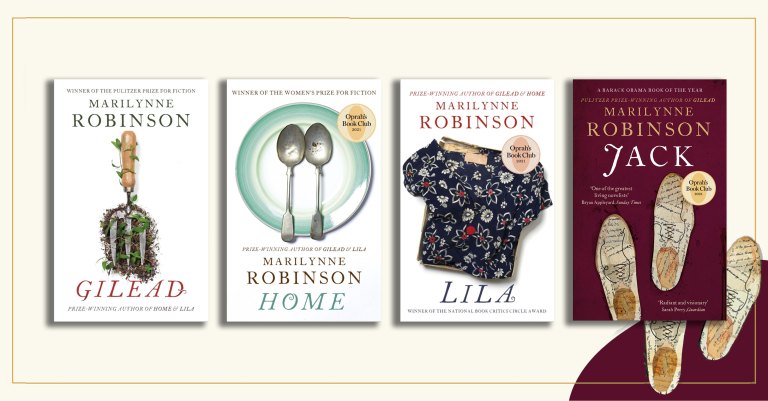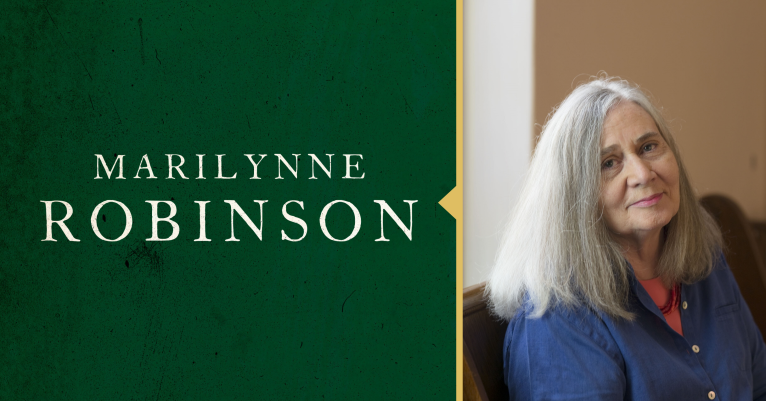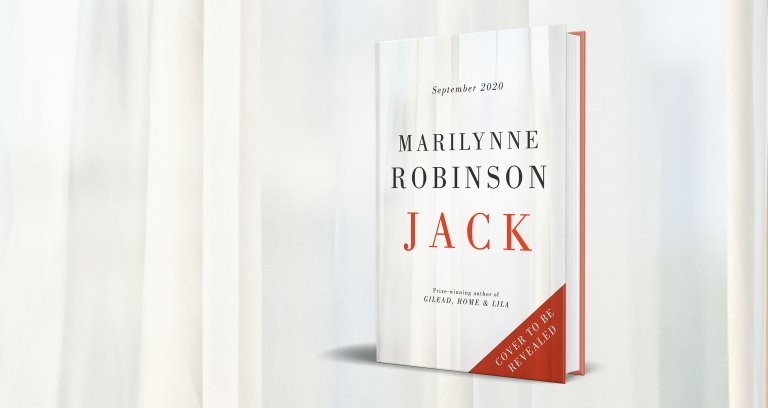Read an extract from Home by Marilynne Robinson
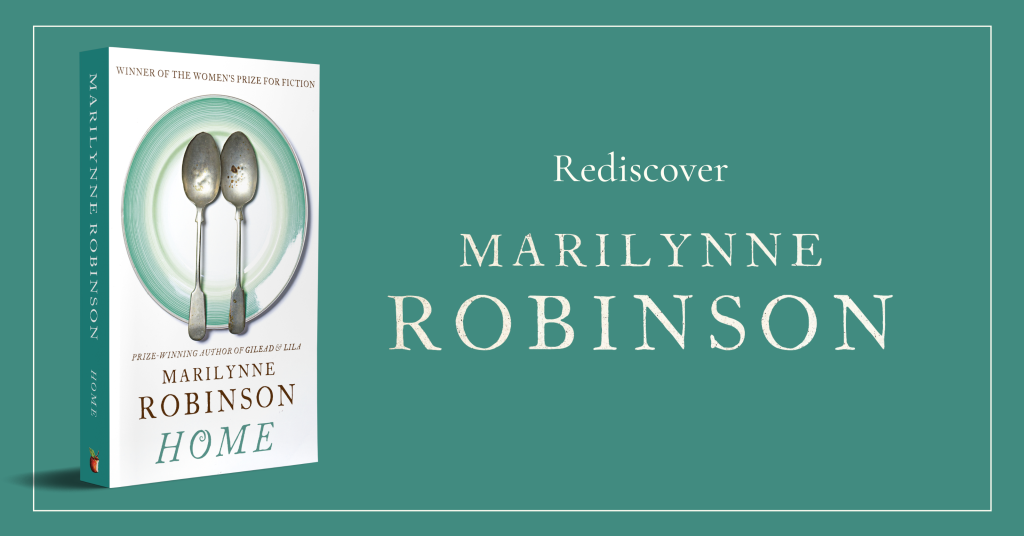
In anticipation of the release of Jack we’re revisiting each novel in the Gilead quartet. Here is an extract from Women’s Prize winning novel, Home.
Jack Boughton – prodigal son – has been gone twenty years. He returns home seeking refuge and to make peace with the past. A bad boy from childhood, an alcoholic who cannot hold down a job, Jack is perpetually at odds with his surroundings and with his traditionalist father, though he remains Boughton’s most beloved child. His sister Glory has also returned, fleeing her own mistakes, to care for their dying father. A moving book about families, about love and death and faith, Home is unforgettable. It is a masterpiece.
‘One of the greatest living novelists’ SUNDAY TIMES
‘A luminous, profound and moving piece of writing. There is no contemporary American novelist whose work I would rather read’ INDEPENDENT
Helena
If I told you my mother’s name, you’d recognize it right away. My mother was famous, though she never wanted to be. Hers wasn’t the kind of fame anyone would wish for. Jaycee Dugard, Amanda Berry, Elizabeth Smart—that kind of thing, though my mother was none of them.
You’d recognize my mother’s name if I told it to you, and then you’d wonder—briefly, because the years when people cared about my mother are long gone, as she is—where is she now? And didn’t she have a daughter while she was missing? And whatever happened to the little girl?
I could tell you that I was twelve and my mother twenty-eight when we were recovered from her captor, that I spent those years living in what the papers describe as a run-down farmhouse surrounded by swamp in the middle of Michigan’s Upper Peninsula. That while I did learn to read thanks to a stack of National Geographic magazines from the 1950s and a yellowed edition of the collected poems of Robert Frost, I never went to school, never rode a bicycle, never knew electricity or running water. That the only people I spoke to during those twelve years were my mother and father. That I didn’t know we were captives until we were not. I could tell you that my mother passed away two years ago, and while the news media covered her death, you probably missed it because she died during a news cycle heavy with more important stories. I can tell you what the papers did not: she never got over the years of captivity; she wasn’t a pretty, articulate, outspoken champion of the cause; there were no book deals for my timid, self-effacing wreck of a mother, no cover of Time. My mother shrank from attention the way arrowroot leaves wither after a frost.
But I won’t tell you my mother’s name. Because this isn’t her story. It’s mine.
1.
“Wait here,” I tell my three-year-old. I lean through the truck’s open window to fish between her booster seat and the passenger door for the plastic sippy cup of lukewarm orange juice she threw in a fit of frustration. “Mommy will be right back.”
Mari reaches for the cup like Pavlov’s puppy. Her bottom lip pokes out and tears overflow. I get it. She’s tired. So am I.
“Uh-uh-uh,” Mari grunts as I start to walk away. She arches her back and pushes against the seat belt as if it’s a straitjacket.
“Stay put, I’ll be right back.” I narrow my eyes and shake my finger so she knows I mean business and go around to the back of the truck. I wave at the kid stacking boxes on the loading dock by the delivery entrance to Markham’s—Jason, I think is his name—then lower the tailgate to grab the first two boxes of my own.
“Hi, Mrs. Pelletier!” Jason returns my wave with twice the enthusiasm I gave him. I lift my hand again so we’re even. I’ve given up telling him to call me Helena.
Bang-bang-bang from inside the truck. Mari is whacking her juice cup against the window ledge. I’m guessing it’s empty. I bang the flat of my hand against the truck bed in response—bang-bang-bang—and Mari startles and twists around, her baby-fine hair whipping across her face like corn silk. I give her my best “cut it out if you know what’s good for you” scowl, then heft the cartons to my shoulder. Stephen and I both have brown hair and eyes, as does our five-year old, Iris, so he marveled over this rare golden child we created until I told him my mother was a blonde. That’s all he knows.
Markham’s is the next-to-last delivery of four, and the primary sales outlet for my jams and jellies, aside from the orders I pick up online. Tourists who shop at Markham’s Grocery like the idea that my products are locally made. I’m told a lot of customers purchase several jars to take home as gifts and souvenirs. I tie gingham fabric circles over the lids with butcher’s string and color-code them according to contents: red for raspberry jam, purple for elderberry, blue for blueberry, green for cattail-blueberry jelly, yellow for dandelion, pink for wild apple–choke cherry—you get the idea. I think the covers look silly, but people seem to like them. And if I’m going to get by in an area as economically depressed as the Upper Peninsula, I have to give people what they want. It’s not rocket science.
There are a lot of wild foods I could use and a lot of different ways to fix them, but for now I’m sticking with jams and jellies. Every business needs a focus. My trademark is the cattail line drawing I put on every label. I’m pretty sure I’m the only person who mixes ground cattail root with blueberries to make jelly. I don’t add much, just enough to justify including cattail in the name. When I was growing up, young cattail spikes were my favorite vegetable. They still are. Every spring I toss my waders and a wicker basket in the back of my pickup and head for the marshes south of our place. Stephen and the girls won’t touch them, but Stephen doesn’t care if I cook them as long as I fix just enough for me. Boil the heads for a few minutes in salted water and you have one of the finest vegetables around. The texture is a little dry and mealy, so I eat mine with butter now, but of course, butter was nothing I’d tasted when I was a child.

